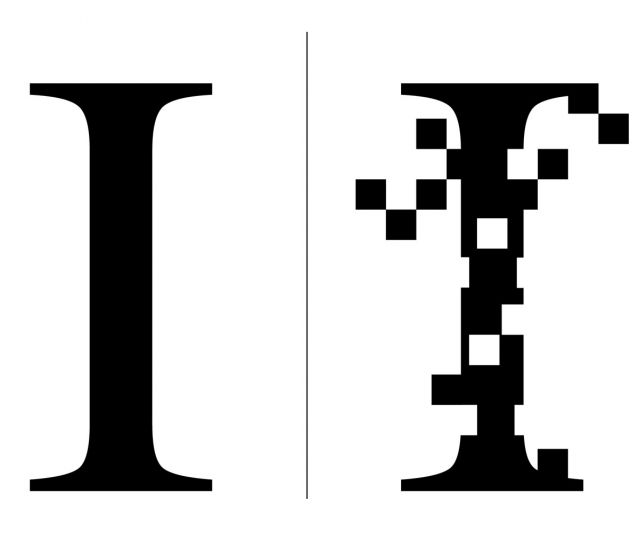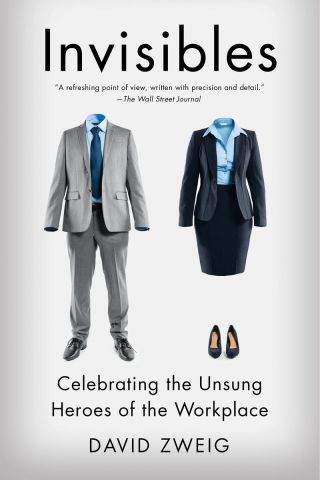Who Cares About Character?
In an age of self-absorption, have we given up on rigorous self-examination?
By Kaja Perina published April 28, 2015 - last reviewed on June 3, 2019

Terry Waite was taken hostage in Beirut in the late 1980s, before ISIS, before smartphones, before the Internet as we know it. He endured a mock execution during the first year of his five-year captivity, which was spent mostly in solitary confinement. Years later, during a Q&A session, he was asked to identify the main thing he had learned from his ordeal. The answer, according to the novelist Richard Powers, who was in the audience, came as a shock—it was not the excruciatingly hard-won appreciation for life and loved ones that Powers expected to hear. “Contemporary humanity,” declared Waite, “has lost the ability to engage in productive solitude.”
Powers was moved, he told The Paris Review in 2003, because Waite’s observation invoked no less than the “care and tending of individual salvation.”
In the decade-plus since Powers’s reflection, the middle and upper-middle classes have been seized by the need to compete in a high-tech information economy, to which an online social presence is essentially a required passport. A backlash against the idea of “packaging” oneself—online and in the world at large—is now, however, in full bloom. Increasingly, the charge is made: Let’s avoid the scourge of self-absorption and instead pursue the type of character-focused self-examination that leads to positive engagement with the wider world.

We have shifted from a culture of self-effacement to a culture of display, argues David Brooks in The Road to Character, from a world in which we cultivated restraint, humility, and moral virtues to one in which the measure of our worth, by our own and others’ estimation, lies primarily in the realm of self-presentation and professional accomplishment. Indeed, grit, willpower, creativity, and the ability to “disrupt” are the coveted characteristics today. These are the zeitgeist’s heavy particles, much lauded, easily detected, and achievement oriented. If disruption is now plainly woven into the fabric of the zeitgeist, then a secret grandiosity is the dark matter of our time: a belief in our own inherent uniqueness, a reverence for the fullest expression of that special self.
The way to avoid this “amplification of ourselves,” suggests David Zweig, is to be intrinsically motivated. In surveying the contemporary workforce, he finds a breed of highly satisfied professionals who are outliers to the extent that they eschew wider recognition for their efforts. Zweig calls such workers “invisibles” in his book of the same name. These people operate behind-the-scenes in almost every field (he highlights professions like musical technician and magazine fact-checker). The commonality is low-profile, high-impact, often collaborative work, wherein the individual’s own barometer of success is all that matters. Zweig argues that a meticulous devotion to one’s craft, a love of responsibility, and ambivalence about recognition are invisibles’ internal armor in a milieu of rampant self-promotion.
Brooks, too, underscores the importance of intrinsic motivation. But he further argues that in the era of the “Big Me,” a relentless focus on achievement crowds out a moral framework. “The shrewd animal has streamlined his inner humanity to make his ascent more aerodynamic,” writes Brooks. “He carefully manages his time and his emotional commitments. Things once done in a poetic frame of mind, such as going to college, meeting a potential lover, or bonding with an employer, are now done in a more professional frame of mind.” Even community service, for some the standard metric of character development in the form of “giving back,” has been reconfigured as a résumé-enhancing path to achievement. Brooks argues that he has observed volunteer work “used as a patch to cover over inarticulateness about the inner life.”
The Road to Character does in fact cut through moral incoherence. It is an elegant meditation on the human capacity for change and for awe. Brooks’s lens is trained on no less than the eternal internal drama that William Faulkner called “the human heart in conflict with itself.” Thankfully, therefore, Brooks does not dwell on Big Me anomie. Instead, he anatomizes 10 lives, from St. Augustine to Dwight D. Eisenhower, with an eye toward moral struggles and vicissitudes, many of which now read as instructively anachronistic. Indeed, the self-abnegation of the “Greatest Generation” generals Marshall and Eisenhower in some ways feels more out of step with contemporary culture than does the soul-searching of St. Augustine more than 1,500 years earlier.

Marshall and Eisenhower were paragons of self-control even for the military: When Marshall was asked point blank by FDR whether he wanted the job of Allied commander of the invasion of France during World War II, the general steadfastly refused to articulate his own desire, insisting that the president himself must decide. The Allies expected Marshall to take command—and he wanted the job. Instead, presumably because he refused to voice his own interest, it went to Eisenhower, who, for his part, made lists of people who angered him and then burned the names so that the emotion would not rankle. Like many politicians and public figures (indeed, like all of us), these men compartmentalized ferociously. But Eisenhower’s strategic second self, if Brooks’s characterization is accurate, was in service of civic goals rather than reputation management. As president, he had no problem presenting himself as stupid or tongue-tied if it met a political objective. Eisenhower’s life, Brooks declares, was “organized not around self-expression, but self-restraint.”
Indeed, self-conquest in matters big and small was the currency of achievement for many of Brooks’s subjects. “The less you agree with the policies of your superiors, the more energy you must direct to their accomplishment,” stated Marshall. He not only swallowed the loss of the commandership to Eisenhower, perhaps his professional nadir, but he also communicated the news to the Allies himself and saved the hastily written executive order that as chief of staff he was obliged to draft. In an unneccessary act of magnanimity, he then sent it along to Eisenhower as a memento of the latter’s triumph.
Today we might call Eisenhower and Marshall inhibited or even two-faced, so focused were they on keeping negative emotions and impossible yearnings in check. But there is another way to view such behavior. Brooks argues that for Eisenhower and his ilk, compartmentalization was a building block of character: “[Human] nature has to be pruned, girdled, formed, repressed, molded, and often restrained, rather than paraded in public. A personality is a product of cultivation. The true self is what you have built from your nature, not just what your nature started out with.”
Another FDR protégée, Frances Perkins, who was the first female cabinet member and the architect of workplace safety nets as we know them today, had her own idea of what constitutes productive solitude, and it extended beyond the convents she sometimes frequented. In a letter to a friend—and evincing a sentiment not often practiced on social media—she called the rule of silence “one of the most beautiful things in the world. It preserves one from the temptation of the idle world, the fresh remark, the wisecrack, the angry challenge…it is really quite remarkable what it does for one.” Perkins almost always opted for the word one instead of the first person pronoun I, her syntax a slight hedge against voice and visibility. Like Marshall, she declined to write a memoir.
Before public visibility entailed decisions about an online presence that any of us, if we so desire, can now make, the choice to disclose personal information was more philosophical than anything else. The “party of reticence,” writes Brooks, citing the work of Rochelle Gurstein, “believes that the tender emotions of the inner world are brutalized and polluted when they are exposed to the glare of public exhibition. The party of exposure believes that anything secret is suspect and that life works better when everything is brought out into the open and discussed.”
It’s impossible to make a categorical case for reticence today. From gay marriage to crowdfunding for medical research, progress is rooted in a willingness to expose matters once private and stigmatized. In the realm of mental health alone, we are all better off thanks to memoirs that illuminate the particulars of struggle even as they transcend them; the best of which use the I that Perkins eschewed more as panoptic than as emotional purge. And we now understand how self-disclosure, especially in writing, can unify a seemingly divided self. Eisenhower, Marshall, and Perkins were hyper-effective, but they were far from content.
On this point, Brooks joins the swelling ranks who argue that we should set our sights on values that outstrip personal happiness. There is a prosocial hierarchy to which most of us reflexively subscribe: Character is more important than accomplishment and personal well-being; we are not simply islands of expediency adrift in a sea of value-neutral opportunity. But were I, for one, asked to log time spent on activities that hone a sense of humility, compassion, and loving kindness, rather than on those that enhance professional and social standing, an alarming discrepancy might emerge.
For most of human history people struggled not to optimize, but simply to endure.
Brooks has an important observation about the impetus toward character building in times past, rooted in the biology of loss. When the death of a child was relatively commonplace, individual bulwarks would need to be erected to prevent total psychic unravelling. One such hedge is, of course, religion. But secular stoicism and forbearance in the face of existential difficulty have a role as well: “If a single slip could produce disaster, with little in the way of a social safety net to cushion the fall...then character and discipline were paramount requirements.” Eisenhower was raised in a family of five boys in an 833-square-foot home. He lost a brother and a son. Such losses of kin were the norm, not the exception, for most of human history, and they helped to mold in survivors the character traits of temperance and fortitude.
Those traits are alive and well today, but we call them by different names—willpower, grit—and rezone them for professional use. And, paradoxically, because the social classes to whom Brooks and Zweig direct their books are so free to direct their mental efforts toward the realm of professional achievement, exceptional accomplishment begins to feel compulsory. It takes an experience as extreme as the captivity endured by Terry Waite to understand just how privileged our daily struggles have become, and what we may be losing in this luxurious space.
Submit your response to this story to letters@psychologytoday.com. If you would like us to consider your letter for publication, please include your name, city, and state. Letters may be edited for length and clarity. For more stories like this one, subscribe to Psychology Today, where this piece originally appeared.
